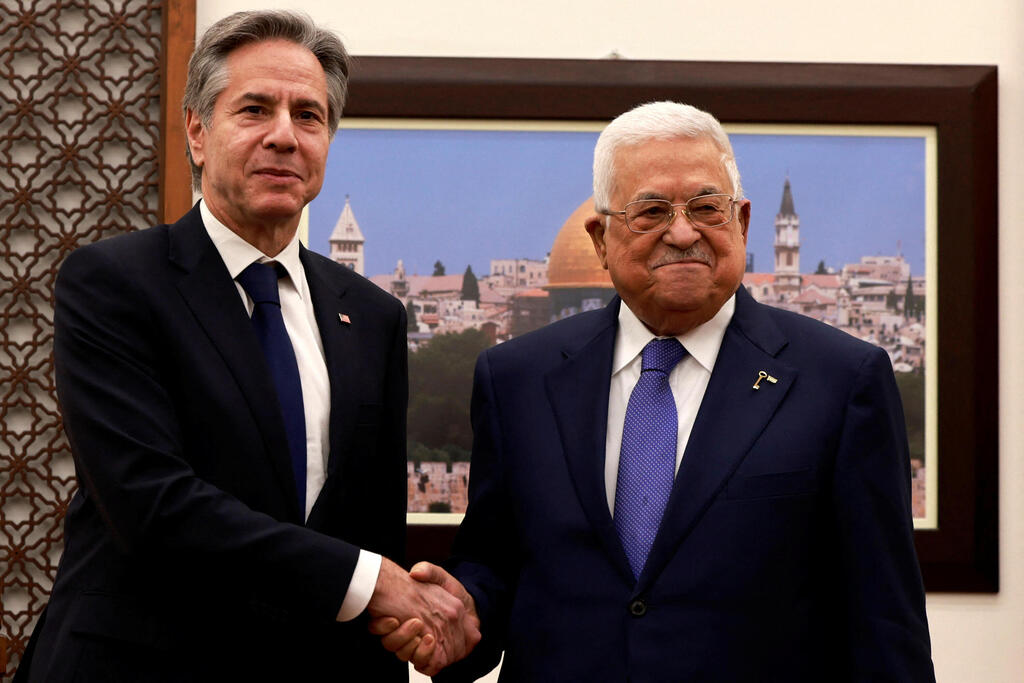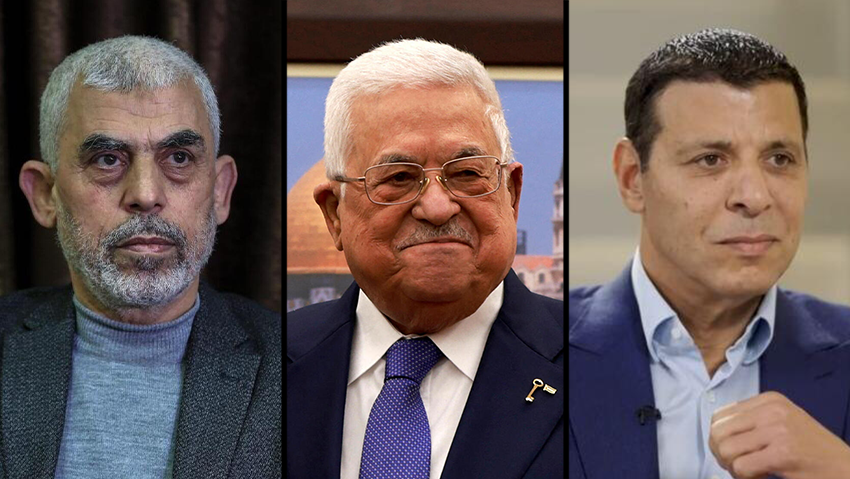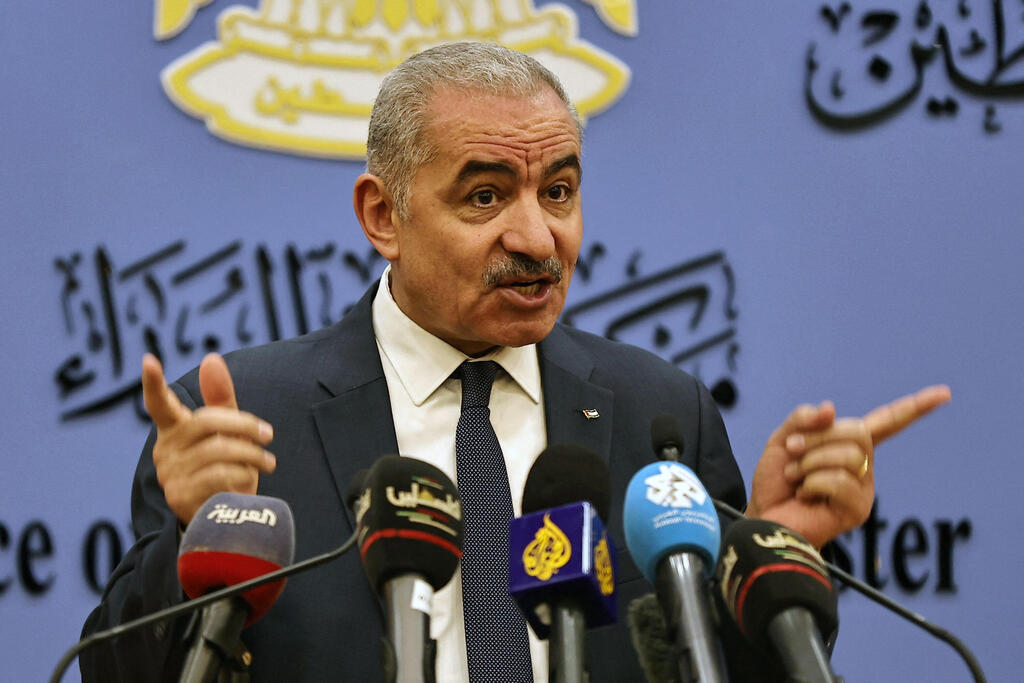Getting your Trinity Audio player ready...
Palestinian Authority Prime Minister Mohammad Shtayyeh submitted his government's resignation to President Mahmoud Abbas on Monday following international pressure to reform the deeply unpopular governing body so it could administer the Gaza Strip after the Israel-Hamas war.
More stories:
Earlier this month, Shtayyeh informed Abbas of his willingness to resign should there be plans to establish a new technocratic government. He has previously contemplated stepping down due to the PA's worsening economic woes.
Abbas has nominated his close adviser Mohammed Mustafa, head of the Palestinian Investment Fund, to lead the technocratic government that will be established after the Gaza war to administer both the Palestinian coastal enclave and the West Bank.
However, many oppose Abbas' continued rule over the Palestinian Authority. Exiled former Palestinian politician Mohammed Dahlan, who opposes the PA chairman's rule, has also nominated a candidate for the role, Nasser al-Qudwa, the nephew of former Palestinian leader Yasser Arafat, who has also been exiled.
3 View gallery


PA Chairman Mahmoud Abbas with U.S. Secretary of State Antony Blinken
(Photo: JAAFAR ASHTIYEH/Pool via REUTERS)
People around Dahlan said on Monday that "without an agreement with the opposition in Fatah and other factions, without Gaza's consent and without persuading the Palestinians of the West Bank, these steps are futile and meaningless."
3 View gallery


Palestinian factions to meet in Russia to discuss next steps
(Photo: JAAFAR ASHTIYEH/Pool via REUTERS, EPA)
At week's end, Palestinian factions will convene in Moscow for a reconciliation summit to discuss post-war plans, including forming a technocratic government. Hamas' deputy foreign minister, Mousa Abu Marzook, will head the terrorist group's delegation to Moscow.
Abu Marzook met last week with Russian Deputy Foreign Minister Mikhail Bogdanov in Moscow. After their meeting, Hamas announced, "Our leadership's delegation held political consultations with the Russian Foreign Ministry, focusing on strategies to secure a cease-fire to halt the aggression against our Palestinian people and to present the movement's stance and policies concerning the issue of prisoners held by the resistance."




